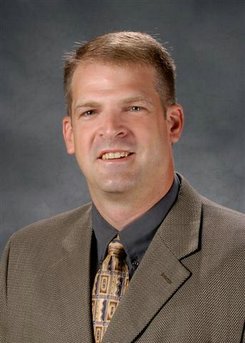Internet is bulletin board for Katrina victims - Yahoo! NewsThe horrific stories continue to emanate from Louisiana (mostly new Orleans). Death. Destruction. Murder. Rape. Drownings and dying from dehydration. And on top of all this, we read that rescue efforts have been hampered by the failure of the "high tech" communications networks upon which we have become so reliant. Cell towers are down (either physically down, or inoperable without power.) Land lines have failed. The
washington post story even talks about how "Victims of Hurricane Katrina struggled to communicate with each other and the rest of the world yesterday."
This is where I find the most interesting success story of the early 21st century. What many have noted is the largest movement of refugees in the United States since the Civil War has demonstrated the strength of the human condition, and the desire to maintain the strong bonds that have turned housing communities into caring neighborhoods. It is these strong bonds, reinforced by the connectivity of this new age, that has me convinced that communities will rebuild, perhaps more quickly than historically. But it also has me convinced that people will be drawn to return to the communities they physically left, because they never actually "left" the community.
As a few of you know (most don't, since I struggle to maintain anonymity on here) my brother and his family live in The New Orleans area. He has sought refuge at my house, here in the Mid West. They arrived here on Thursday, after having toughed it out for a few days a little in-land, and then checking on their house. They are well, and they have survived relatively unscathed. But this blog isn't about them. It's about their connectivity.
Throughout the journey, we remained in frequent contact with me through cell phone service, and text messages. It turns out that, while cell phone service is not active in the disaster areas, those that have left the area (and are thus "roaming") are able to make outgoing calls. Alas, they cannot receive calls. Enter "innovative technologies." Text messaging, once the exclusive domain of teenagers and college students bored in the classrooms, has become the lifeline tying the various members of this new-age Diaspora together. In our case, I would text my brother, and he would call me, closing the loop on the telecommunication connection. For those scattered, they make, and maintain, contact via text messages, since they can each call out but not receive calls.
Satellite radio also played a significant role. As one travels the highways, disconnected from the world around them, localized reports of trauma are just that--local, and limited in perspective. Some may report devastation, while others may report minimal impact. One is left without the 30,000 foot perspective. Or, in this case, the Low Earth Orbit perspective. Having XM Satellite radio enabled my brother to gain that bigger perspective, listening to the weather channel, Fox News, MSNBC and CNN, and other commentaries, each bringing their unique perspectives. The family remained connected, even without the gruesome video that the rest of us saw.
Once they arrived, enter technology of the LAST century. Arriving at 3 in the morning, the first objective, obviously, was to settle in. The second--reconnect with "the scattered remnant" through phones, and high speed internet service. In this house, we had 4 notebook computers and one desktop running wireless connections (windows, AND Mac OS X with the arrival of my brother). In addition, we have three other computers running wired connections, and the occasional high speed 802.11 connection for the PDA.
What did all this technology do? Within hours, my brother, and his wife, had compiled unofficial lists of friends, and their families, who had evacuated. They knew where people landed, and often the condition of the homes and offices they left behind. Additionally, colleagues of my brother found me, apparently through a google search, and inquired as to his safety. From that point, conversations turned to how best to help those left behind, and coordinate actions, from around the country. Each pocket has become ambassadors for those that remain, carrying the stories, updated in near-real-time, to those that have taken them in.
The world has seen the power of humanity for evil, in the news. But the human spirit deserves credit here, as well. Being connected helps people continue to care, and ensures that the human face remains on the tragedy, and the need to help.

